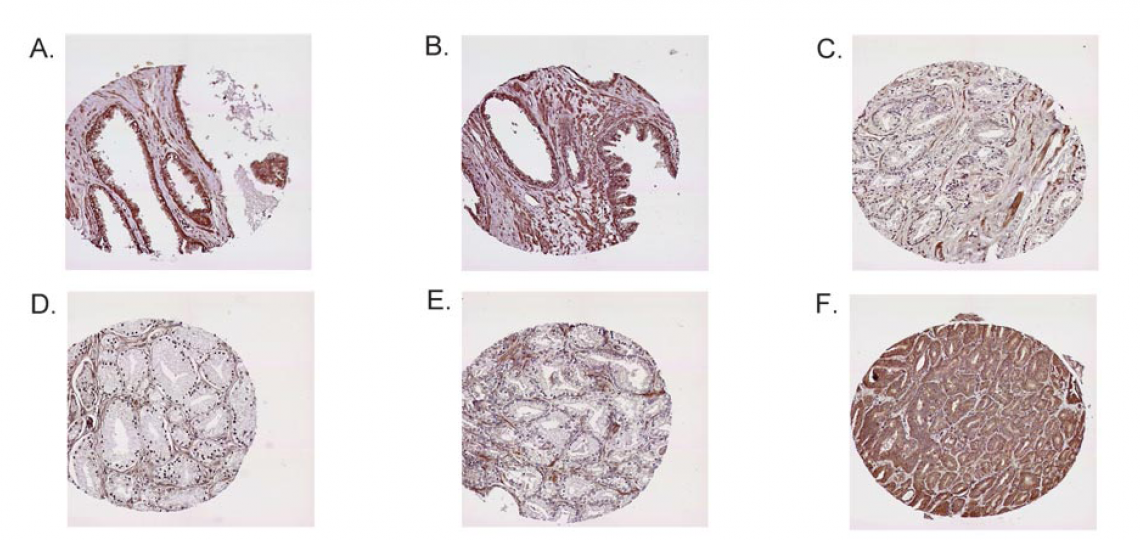Recently a new family of regulators of FGF activity has been identified. The Sprouty gene family negatively regulates FGF signaling in a variety of systems and could potentially limit the biological activity of FGFs in prostate cancer. Immunohistochemical analysis of normal and neoplastic prostate tissues using tissue microarrays revealed that Sprouty1 protein is down-regulated in approximately 40 percent of prostate cancers when compared with matched normal prostate. By quantitative real-time PCR analysis we found that Sprouty1 mRNA levels were significantly decreased in prostate cancers in vivo in comparison to normal prostate. In prostate cancer cell lines there is loss of the normal up-regulation of Sprouty1 mRNA and protein in response to FGFs. The decrease in Sprouty1 expression in the human prostate cancer, despite elevated levels of FGF ligands and FGF receptors, implies a loss of an important growth regulatory mechanism in prostate cancers that may potentiate the effects of increased FGF and FGFR expression in prostate cancer.
Current Efforts
Our research efforts are focused on:
- Determining whether expression of other Sprouty genes are decreased in prostate cancer
- Understanding the mechanism by which Sprouty mRNAs/proteins are down-regulated
- Elucidating the biological and clinical consequences of Sprouty down-regulation

Loss of expression of Sprouty1 protein in prostate cancer.
Publication
Kwabi-Addo B, Wang J, Erdem H, Vaid A, Castro P, Ayala G, and Ittmann M. 2004. Expression of Sprouty1, an inhibitor of fibroblast growth factor signal transduction, is decreased in human prostate cancer. Cancer Res 64: 4728-4735.








